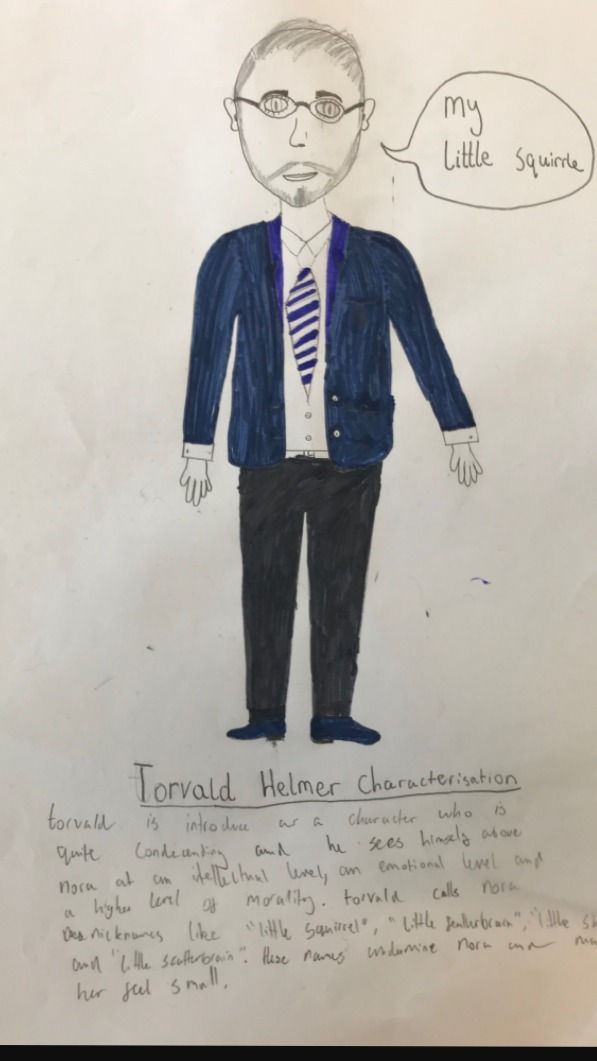Characterisation of Torvald
- George Riley and Clara Von Kaehne
- Oct 4, 2021
- 2 min read
Some quotations to show how Torvald acts and his opinions
- 'now comes the time for upbringing...both yours and the children's' P183
Torvald acts as a father like person, suggesting the people's role in marriage
- 'But nobody would sacrifice their honour for the one they love' P186
Shows how Torvald believes the role one person has in society is more significant than the relationships between themselves and another.
- 'You are first and foremost a wife and a mother' P184
Shows how cultural norms have forced people to act in a specific way.
Torvald's emotional response to the situation perhaps suggests that he is unable to put himself in others shoes.
Social pressures and the way he has been brought up in society have prevented him from doing this.
- ' Is that my song-lark chirruping out there?' P110
Helmer calls Nora by pet names. This diminishes her and shows the relationship in their marriage.
- 'Nora; what do you think i have here?
Money!'
Demonstrates that he treats Nora as a child. Controlling her in everything, women have virtually non-existent legal rights and so Torvald is in charge of any money she has access to.
- 'But do you think you are any less dear to me because you don't know how to act independently? No; just you lean on me.' P180
Torvald see Nora as useless and silly and not really as a woman with her own mind and beliefs. This represents how women at the time were seen and viewed. Unable to do anything by themselves.
Torvald is introduced to us as a character who is condescending towards Nora and has an attitude of superiority above Nora, intellectually, emotionally, and he believed himself to have a higher level of morality. Torvald calls Nora nicknames like ‘little squirrel’, ‘spendthrift’, ‘little skylark’ and ‘little scatterbrain’. These names undermine Nora and make her appear small.
These nicknames show the context of the time and the self-righteous Torvald, as a man, has. He believes Nora’s place is in the home and that she must be looked after. Although we could understand this as a caring husband-wife dynamic we see that it is in fact it is a dangerous power imbalance and that the social, political, and economic factors play into how Torvald perceives his wife.
George Riley


Comments